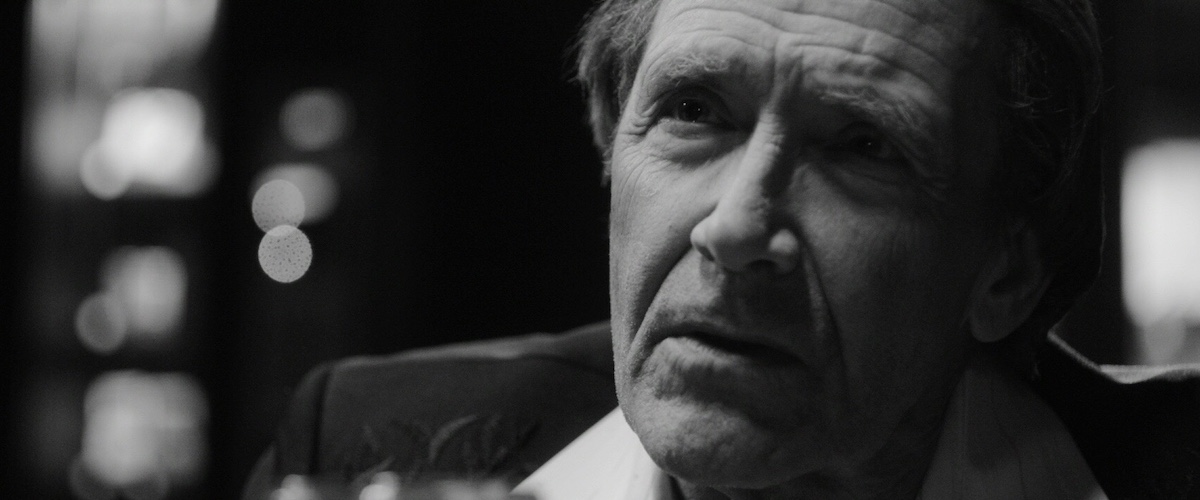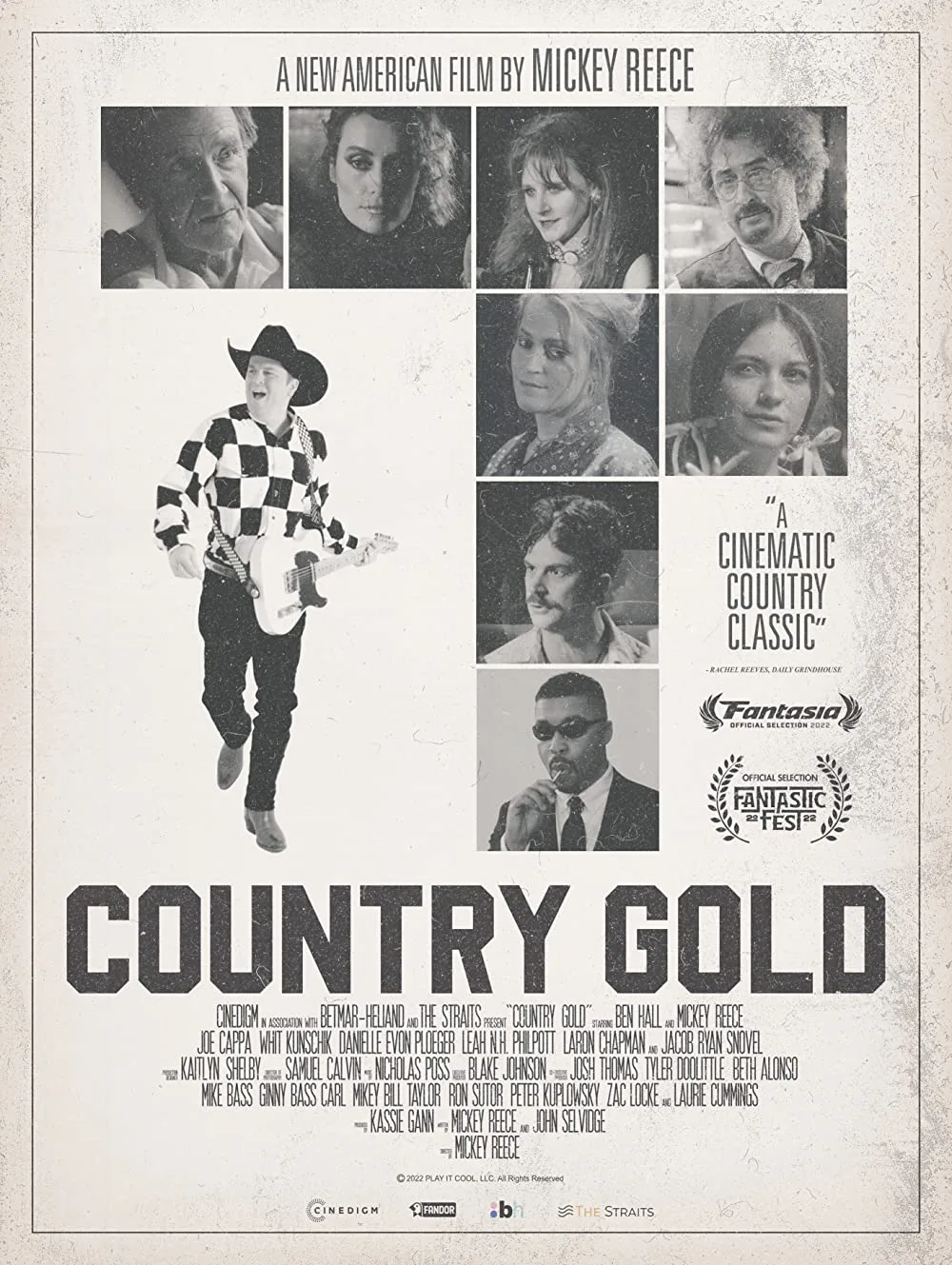I was thinking the other day about the dearth of indie filmmakers with very distinct local visions. I’m talking about John Waters in Baltimore or Richard Linklater in Austin. Now, I’m not here to suggest that Mickey Reece has that kind of skill set, but I have to admit to being drawn to the very unusual nature of his voice. We need more filmmakers willing to get weird in the way that Reece does with “Country Gold,” a movie that could be read as a sort of attack on Garth Brooks and country music in general, but that also feels like Reece doesn’t want anyone to take it that seriously. In fact, there’s a reading of this movie that it’s a movie about not taking movies like this too seriously. Every time I tried to unpack “what this film was saying” about celebrity or artistry, it would take a left turn into weird surrealist comedy and defy interpretation. Maybe the point is that it’s all silly—fame, music, and independent filmmaking.
Reece himself plays an ‘80s country star named Troyal Brux. If you think that’s an odd name, it’s worth noting that Garth Brooks’ real name is Troyal Garth Brooks, making the parallel to another Oklahoma artist very intentional. Brux has reached a point in his career where he’s pondering the big questions about what it all means. When he says on a show that George Jones is one of his idols, the country singer reaches out to Brux and invites him to visit him in Nashville for a night that goes from conversation to crazy stories to pointed guns to uncomfortable massages. Ben Hall plays Jones almost more like a grizzled mobster than a country singer—although maybe the difference isn’t that distinct. He’s seen it all, done it all, and mostly hates it all.
A conversation between a rising star and a fading one is inherently interesting, and “Country Gold” is at its best when Reece and Hall riff off each other, contrasting the very different energies of their characters. This is established early in one of my favorite scenes after Jones orders a rare steak and Brux commits the carnal sin of ordering his well-done. With some clever animation to drive the point home, Jones points out the error of his ways in a bit that’s funny and table-setting for what’s to come. You can’t find two guys more fundamentally different than the rare steak guy and the well-done one.
What feels like it might be a two-hander pivots into something stranger as George and Troyal end up at a dive bar, and the movie intercuts George’s larger-than-life stories with a one-crazy-night narrative that involves drug use and the temptation of infidelity for the faithful Brux. Jones tells stories that turn into flashbacks of his youth, and the first one casts him as a literal hitman for the mob. Is Reece playing up the legendary status of a country icon? Making him even larger than life? To what end? What does it all mean?
I’m not sure it means anything at all, and Reece’s odd approach can be a blessing and a curse. The sort of nonchalant way this film handles country music is sometimes pretentiously dismissive, but its unique tone helps it overcome these missteps. The performances by most of the cast are forced in way that’s purposeful in its mediocrity, with an ensemble that sounds like they’re awkwardly reading their lines for the first time. It all gives “Country Gold” the feeling of something like a dream—a world of mannered performances and surreal left turns. It doesn’t all make sense or add up to much, but there’s a consistency to its inconsistency that I admire. It’s something that works on a mood more than literally. Kind of like a great country song.
On Fandor now.




















